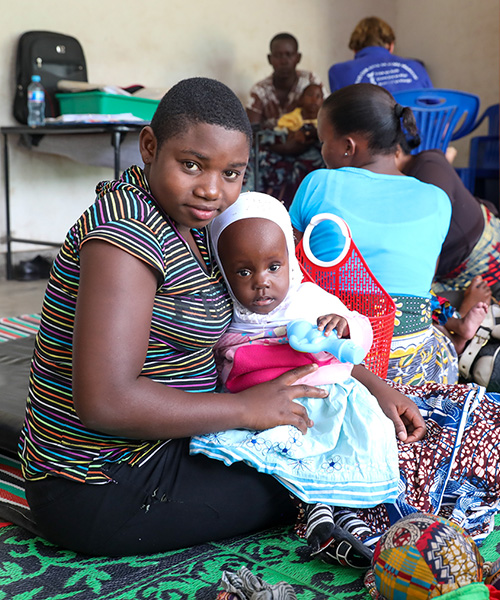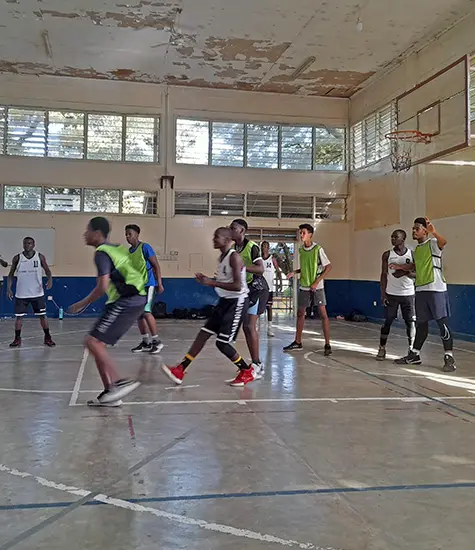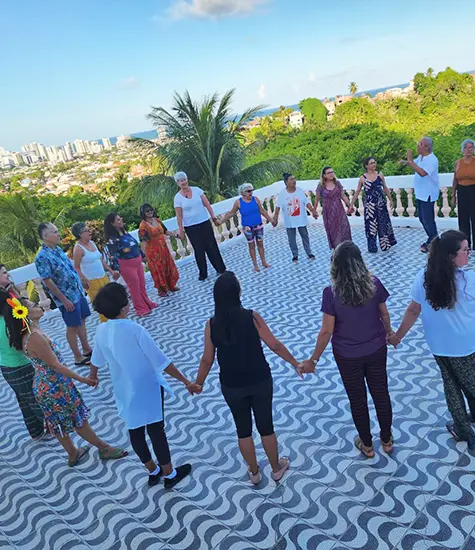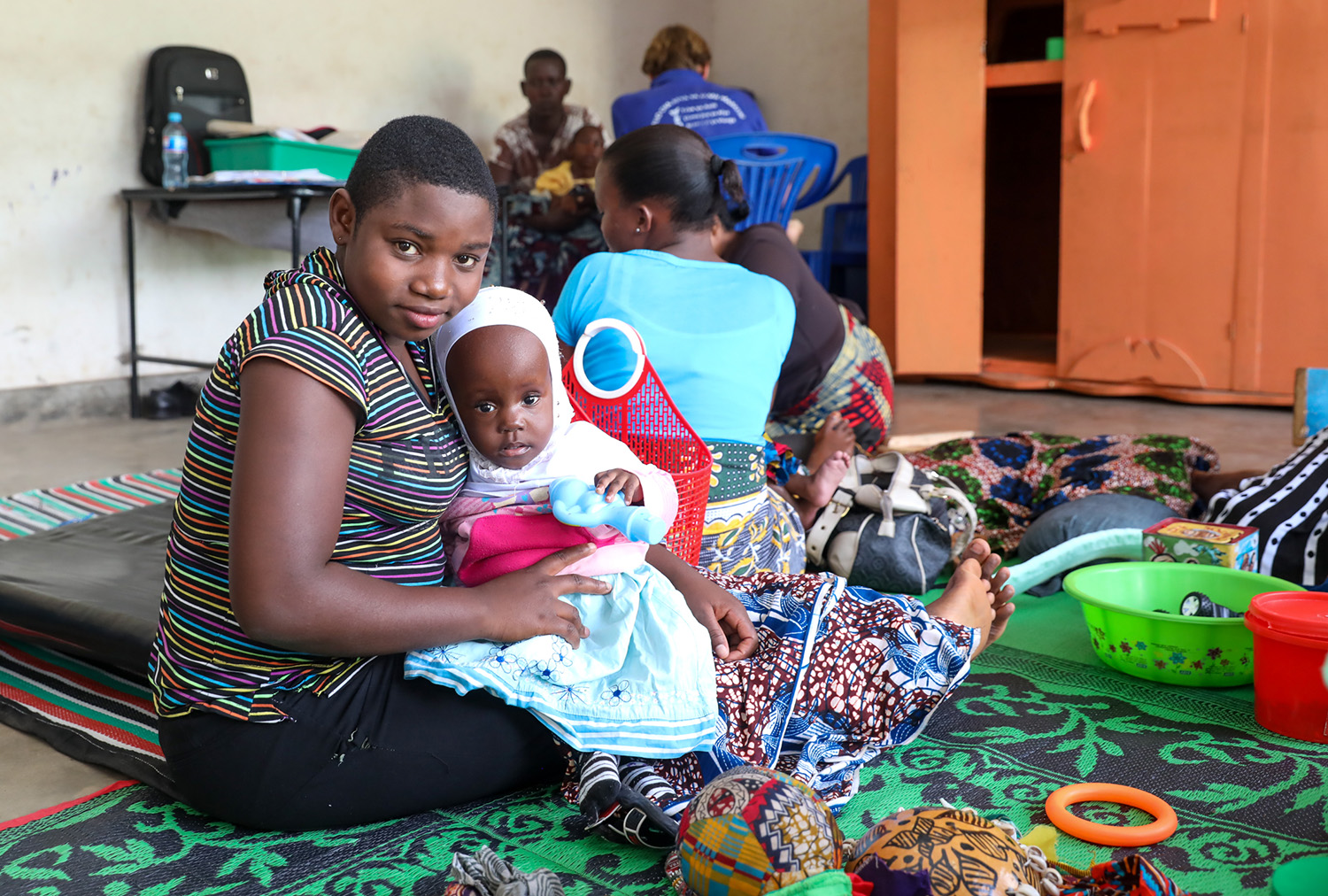
The mothers of children living with disabilities have a sacred faithfulness to their children that continues to bring them to the Mabatini public health ministry. Photo by Jerry Fleury
In St. Paul’s First Letter to the Corinthians (1:9), we are reminded that “God is faithful.” As Christians we believe in the omnipotence and unconditional love of our Creator, but how often do we forget that the nature of God is also faithfulness? God is faithful, despite being all-knowing. God doesn’t have to use faith to fill in gaps of knowledge or wisdom, so why does Paul note this as one of his attributes? To explore this question, I reflected on my experience of mission in Tanzania over the past year.
Since coming to Mwanza, I have had the privilege of working for a community health program of the Maryknoll-run Transfiguration Parish in the city’s Mabatini neighborhood. Part of our program includes working with children who are living with disabilities, brought to the parish two or three days a week to do physiotherapy with our staff and often to be seen by our pediatrician, Maryknoll lay missioner George Stablein. Nearly all of the 50 children we serve are brought each week by their mothers, who often carry the children on their backs as they travel from near and far on foot.
Unfortunately, the situations facing these mothers and their children living with disabilities are often complicated by other challenges in their lives. The challenge of trying to raise a child with disabilities, while doing the necessary amount of work to keep your family fed, clothed, and housed, is near universal. Strained or broken marriages, family obligations, substance abuse, and physical abuse, are everyday realities.
While it is easy to be overwhelmed by the amount of suffering, I submit that “God’s faithfulness” is alive precisely because of the faithfulness of these mothers. They come each week, with no guarantee of really changing much of anything. They’re not promised that their child will be healed. They’re not promised to be made rich, or to otherwise dispense of their financial burdens. They’re not promised to be transported out of Mabatini into some other imagined life. But they have a sacred faithfulness to their children that brings them here. They have a belief, even a faith, that maybe the lives of their children can be just a little bit better than if they simply stayed at home.
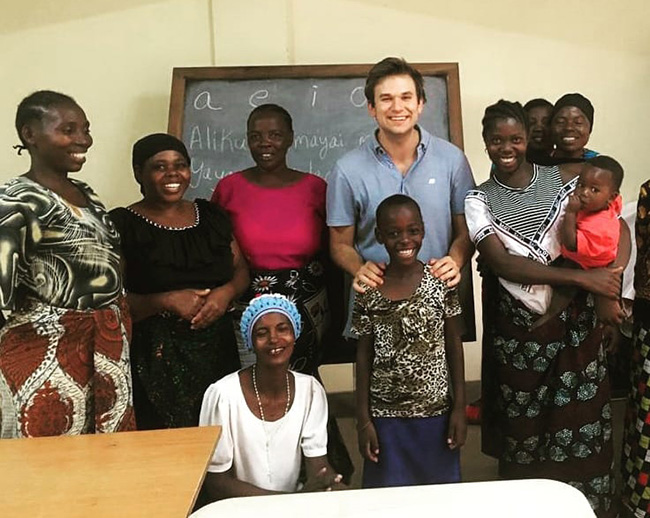
Week after week the participants in our adult literacy class show up, listen attentively and write carefully.
My other ministry in Mabatini is helping to teach adult literacy. Twice a week, young mothers, old grandmothers, and young men in their 20s, all converge on a little classroom beneath the rectory to learn how to read and write. Many of them have had little to no formal education, hailing from rural villages where work took precedence over going to school. Week after week they show up, listen attentively, write carefully, and often are not shy about asking for clarification when my Swahili falls short.
Learning literacy as an adult, particularly for some who are into their 70s, is a unique challenge. The mechanics of writing, vision challenges, and a decreased memory all make retaining the material very difficult. And yet, they remain utterly faithful to their endeavor. Even if it means practicing writing the vowels “a, e, i, o, u” week after week, as it does for one of my students, each week I can expect her in the first seat on the left in the front row.
In St. Pauls letter, we are told that God’s nature is faithfulness, and that we are given all the spiritual gifts that we need in this life. I can think of no better models of divine faithfulness than my literacy students and the mothers of disabled children. They believe in the possibility of their children living a better life, and they believe in their ability and their right to learn, despite life circumstances that tell them simply to accept their fates.
To manifest our divine nature is to be faithful, despite doubt and despair. I have been privileged to see that in Mabatini Paul’s letter remains alive.

